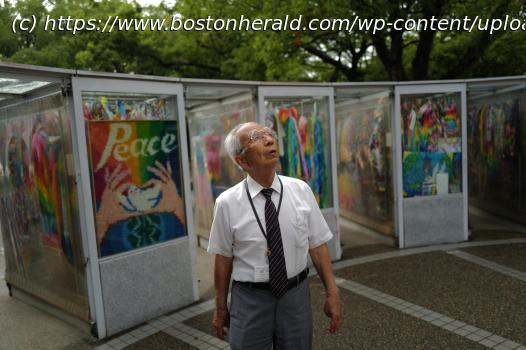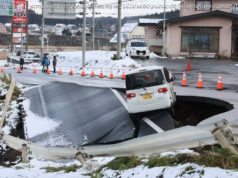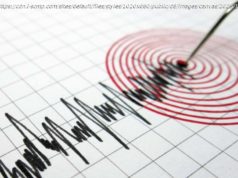Survivors of the Hiroshima and Nagasaki atomic attacks are increasingly speaking out against nuclear weapons.
Eighty years after the atomic bombings of Hiroshima and Nagasaki, many of the remaining Japanese survivors are increasingly frustrated by growing nuclear threats and the acceptance of nuclear weapons by global leaders.
The U.S. attacks on Hiroshima on Aug. 6, 1945, and three days later on Nagasaki killed more than 200,000 people by the end of that year. Others survived but with radiation illness.
About 100,000 survivors are still alive. Many hid their experiences to protect themselves and their families from discrimination that still exists. Others couldn’t talk about what happened because of the trauma they suffered.
Some of the aging survivors have begun to speak out late in their lives, hoping to encourage others to push for the end of nuclear weapons.An English-speaking guide at Hiroshima’s peace park
Despite numerous health issues, survivor Kunihiko Iida, 83, has devoted his retirement years to telling his story as a way to advocate for nuclear disarmament.
He volunteers as a guide at Hiroshima’s Peace Memorial Park. He wants to raise awareness among foreigners because he feels their understanding of the bombings is lacking.
It took him 60 years to be able to talk about his ordeal in public.
When the U.S. dropped a uranium bomb on Hiroshima, Iida was 900 meters (yards) away from the hypocenter, at a house where his mother grew up.
He was 3 years old. He remembers the intensity of the blast. It was as if he was thrown out of a building. He found himself alone underneath the debris, bleeding from shards of broken glass all over his body.
“Mommy, help!” he tried to scream, but his voice didn’t come out. Eventually he was rescued by his grandfather.
Within a month, his 25-year-old mother and 4-year-old sister died after developing nosebleeds, skin problems and fatigue.
Home
United States
USA — Japan Japan’s aging atomic bomb survivors speak out against nuclear weapons






